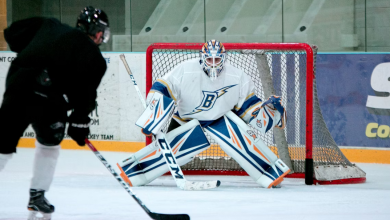Hockey Diversity Alliance (HDA) makes statement regarding Evander Kane allegations

The Hockey Diversity Alliance released a statement on Tuesday regarding board member Evander Kane, who is currently under investigation for gambling on NHL games.
Statement regarding allegations against Evander Kane. pic.twitter.com/HVwlHvGkg9
— Hockey Diversity Alliance (@TheOfficialHDA) August 3, 2021
Evander Kane is one of the founding members of the HDA, which was formed in 2020 “to eradicate racism and intolerance in hockey.” He also serves as one of the co-heads of the committee alongside former NHLer Akim Aliu, who made headlines in 2019 for sharing his story of a past hazing incident involving then-Calgary Flames coach Bill Peters. (Peters resigned due to the allegations.)
The HDA executive committee also includes active players Matt Dumba, Wayne Simmonds and Trevor Daley, as well as former NHLers Joel Ward and Chris Stewart.


[…] Source link […]